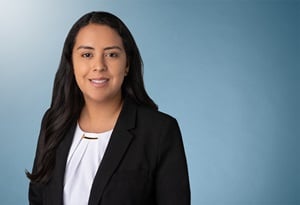Responding to the Vacated FLSA Salary Threshold Rule
Eastern District of Texas Overturns 2024 Executive, Administrative and Professional (EAP) Exemption to the Overtime Rule
At a Glance
- The Eastern District of Texas recently vacated the 2024 EAP Exemption to the Overtime Rule, increasing the salary threshold for certain exemptions under the Fair Labor Standards Act.
- The previous salary threshold — established in 2019 — of $684 per week ($35,568 annually) for EAP employees is now in effect and employers no longer need to adjust salaries for the additional salary threshold increases scheduled for January 1, 2025, and beyond.
- The highly compensated employee salary threshold returns to its prior level of $107,432.
- This decision is limited to the federal Department of Labor’s decision-making authority, and therefore does not impact any salary threshold for exempt employees under any state wage and hour laws.
On November 15, 2024, a federal judge in the Eastern District of Texas overturned the 2024 Department of Labor (DOL) rule (the 2024 Rule) increasing the salary threshold for certain exempt employees under the Fair Labor Standards Act (FLSA). Under the FLSA, employees are exempt from overtime and minimum wage provisions when they (1) meet the duties test for the applicable exemption and (2) are paid a salary that meets or exceeds the established salary minimum. Passed in April 2024, the 2024 Rule implemented a steadily increasing salary threshold for executive, administrative and professional (EAP) exemptions under the FLSA. Under the 2024 Rule, the DOL raised the salary threshold for EAP positions to $43,888 a year ($844 weekly) effective July 1, 2024, and to $58,656 a year ($1,128 weekly) effective January 1, 2025, with additional annual increases thereafter. The 2024 Rule also increased the overtime salary threshold for highly compensated employees from $107,432 to $132,964 effective July 1, 2024 and to $151,164 effective January 1, 2025.
The November 15, 2024, order was issued in a case where the state of Texas and other Texas business associations sued the DOL under the Administrative Procedure Act, claiming that the 2024 Rule improperly exceeded the DOL’s authority, relying in part on Loper Bright, the recent Supreme Court decision overturning Chevron deference. The Court in that case held that the DOL exceeded its statutory authority in establishing the increased salary threshold, effectively overshadowing the duties test under the FLSA, and that the DOL circumvented the appropriate rulemaking process by establishing ongoing annual increases. The decision has the effect of vacating the 2024 Rule nationwide and reverting the minimum salary threshold to the pre-2024 Rule levels for both the EAP and highly compensated exemptions.
Q: What are the current requirements for an employee to qualify as exempt under the EAP exemption?
A: To qualify as an exempt EAP employee under the FLSA, employees must continue to meet the duties test for the applicable EAP category and must be paid at least $684 weekly ($35,568 annually). State law may impose a higher salary threshold than the federal law for the purposes of an exemption from overtime and minimum wage requirements of state law.1
Q: Does this decision reverse the salary threshold increase that went into effect as of July 1, 2024?
A: Yes, the salary threshold for the EAP exemption under the FLSA that went into effect July 1, 2024, has been vacated.
Q: Does this decision also impact the highly compensated employee increase as of July 1, 2024, and planned for January 1, 2025?
A: Yes, the salary threshold for highly compensated employees under the FLSA is reverted to the pre-2024 level of $107,432. We caution that some states do not have a highly compensated employee exemption for purposes of state law.
Q: Will any of the planned future increases to the salary threshold go into effect?
A: No, the salary threshold increases for EAP and highly compensated employee exemptions under the FLSA will not go into effect on January 1, 2025, or in subsequent years.
Q: Does this decision impact any salary threshold changes under state law?
A: No, the decision is limited to the federal DOL’s decision-making authority. Many states require employees to be paid higher salaries in order to be exempt from state overtime and/or minimum wage laws under an equivalent to the EAP exemptions. For example, in 2025, Washington State will increase its salary threshold for exempt workers to $1,332.80 per week ($69,305.60 annually) for small employers (1-50 employees) and $1,4990.40 per week ($77,968.80 annually) for large employers (51 or more employees). New York will increase its salary threshold for exempt workers to $1,237.50 per week ($64,350.00 annually) in New York City and certain surrounding counties and for other parts of New York to $1,161.65 weekly ($60,405.80 annually). California’s salary exemption threshold for administrative, executive and professional roles will increase to $5,720 monthly ($68,640.00 annually).
Q: If an employer already implemented or announced salary increases to employees, are they required to maintain the increased salary?
A: Employers may choose to keep those increased salaries in place, or may retract any notices of salary increases and/or reduce salary levels back to an amount that satisfies the pre-July 1, 2024, salary threshold for the EAP exemptions. Employers should consider the employee relations impact of making any changes, even if permissible, to previously implemented or announced salary increases to maintain the exemption from federal overtime and minimum wage law. Employers may also be required to provide advance notice of any wage change under applicable state law.
Q: Should employers review exempt positions?
A: This ruling may trigger closer examination of the exemption classification by employees. As a result, employers are encouraged to review positions to determine if the duties performed satisfy one or more of the available exemptions under the FLSA.
Q: Can this decision be appealed?
A: Yes, the DOL may appeal this decision to the Fifth Circuit Court of Appeals, and any further challenges could reach the U.S. Supreme Court. However, the upcoming change in presidential administration is likely to impact any further DOL action on this ruling.
Q: Can the DOL issue a new rule with revised salary thresholds?
A: It is possible for the DOL to issue a new rule with revised salary thresholds, but any future rule is likely to face additional legal challenges unless the DOL carefully follows the rulemaking authority outlined by the FLSA. Although the last increases in the salary threshold for EAP employees and for highly compensated employees came during the Trump I administration, in light of President-elect Trump’s campaign’s promises to further deregulate various industries and the impact of the U.S. Supreme Court’s Loper Bright decision on federal agency regulatory authority, it appears to be unlikely the incoming Trump administration will attempt to raise the salary threshold.
Q: What is the process for further changes to the federal salary threshold under the FLSA?
A: Further changes to the salary threshold for the EAP or highly compensated employee exemptions will be formally promulgated through a notice-and-comment period among other rulemaking requirements.
- State laws may also have different duties tests; we encourage employers to closely scrutinize requirements under both state and federal law when determining whether employees may be properly classified as exempt.
The material contained in this communication is informational, general in nature and does not constitute legal advice. The material contained in this communication should not be relied upon or used without consulting a lawyer to consider your specific circumstances. This communication was published on the date specified and may not include any changes in the topics, laws, rules or regulations covered. Receipt of this communication does not establish an attorney-client relationship. In some jurisdictions, this communication may be considered attorney advertising.




